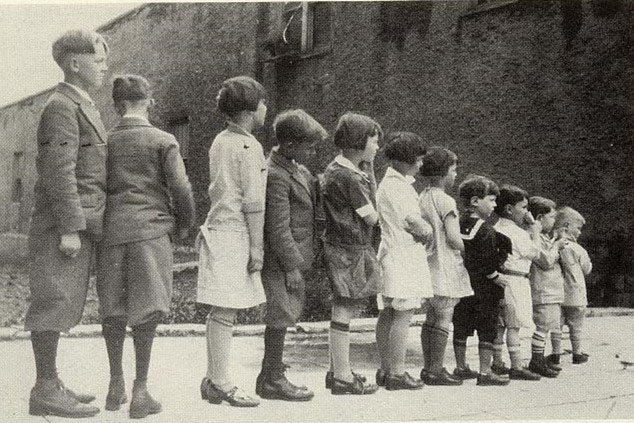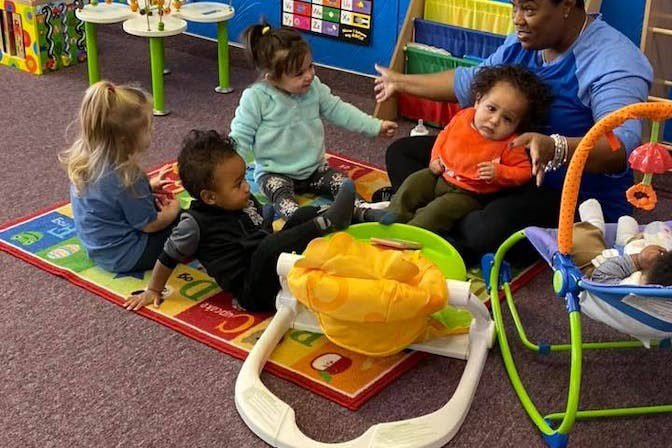All Work
Early Childhood Education
The Importance of the First Five Years: Katharine Stevens’ Testimony on Capitol Hill
Today’s early care and education programs must have two purposes. First, support parents’ work in a 24/7 economy, and second, advance children’s healthy growth and learning during the most crucial period of human development.
Promoting State Leadership: A Federal Strategy for Advancing High-Quality Care and Education for Young Children
We must find new ways to promote and leverage growing state commitment to early childhood, to incentivize state innovation, and to highlight strategies and activities of currently leading states.
Federal Early Care and Education Programs: Advancing Opportunity through Early Learning
A two-generation approach that eliminates silos between current federal programs and reduces regulatory and fiscal barriers to innovation can break the cycle of intergenerational poverty — advancing opportunity for two generations simultaneously.
The Promise of Pay for Success
Pay for Success can’t solve every social challenge alone. But it holds great promise as a bipartisan approach to build more effective, efficient and responsive government programs.
Pay for Success: A New Approach to Funding Social Welfare Programs
Four national experts explain the Pay for Success model, an innovative new approach to public financing that improves social programs’ effectiveness and advances evidence-based policymaking.
‘Set Their Feet Upon Surer Paths’
An 80-year legacy of federal policymaking in early childhood has left us with a hodgepodge of fragmented funding streams, disconnected from each other and from a clear, coherent purpose.
Renewing Childhood’s Promise: The History and Future of Federal Early Care and Education Policy
Today’s federal early care and education policies are fragmented, inefficient, and unnecessarily complex. Federal policymaking is driven by coping with what exists rather than by what we are trying to accomplish: giving America’s least-advantaged children a fair chance at a happy, productive life.
A Look Back at the Social Security Act of 1935 and Its Forgotten Focus on Needy Children
Eighty years ago today, Franklin D. Roosevelt signed the 37-page Social Security Act (SSA) of 1935 into law, enacting the most fundamental change in social policy in America’s history. But the program's original focus on children’s human flourishing has largely been lost.
Pay For What Works
An innovative public financing approach known as Pay For Success provides a way to break the cycle of ineffective government spending on social programs.
‘Path Dependency’ in Early Childhood Policy: What It Is and Why It Matters
Our current debates over early education are confined to well-worn, counterproductive ruts in the early childhood policy road.
Advancing Opportunity Through Early Learning
Building new bureaucracies or tacking preschool programs onto failing public schools are not the correct strategies for moving forward. Instead, we should target funding at the most vulnerable children, strengthen existing federal programs rather than create new bureaucracies, and promote research and innovation to raise the bar for action.
Reauthorizing the Federal Home Visiting Program Was the Right Thing to Do
Voluntary home visiting programs, while not as well-known as Head Start or pre-K, may be the single most promising approach to improving the lives of America’s most disadvantaged young children.
Here Come the Child-Care Cops
Research shows that good preschool can be critical to young children’s development and is insufficiently accessible to poor and working-class families. But new federal grants are paying states to institutionalize a misguided conception of quality, repeating the same mistakes that the education establishment has been making in K-12 for decades.
Head Start Effectiveness Varies — the Important Question Is Why
An important new study reanalyzed data from the Head Start Impact Study, showing that some Head Start centers are effective while others are not.
A Pivotal Shift in the New Child Care and Development Block Grant
The most striking aspect of the newly-reauthorized federal childcare program is its pivotal shift from seeing child care solely as a babysitting service for working parents to recognizing it, too, as a crucial opportunity for young children’s early development and learning.
What the Midterm Elections Mean for Pre-K
For pre-K, the outcomes of the governors’ races will make much more of a difference than who controls the US Senate.

















